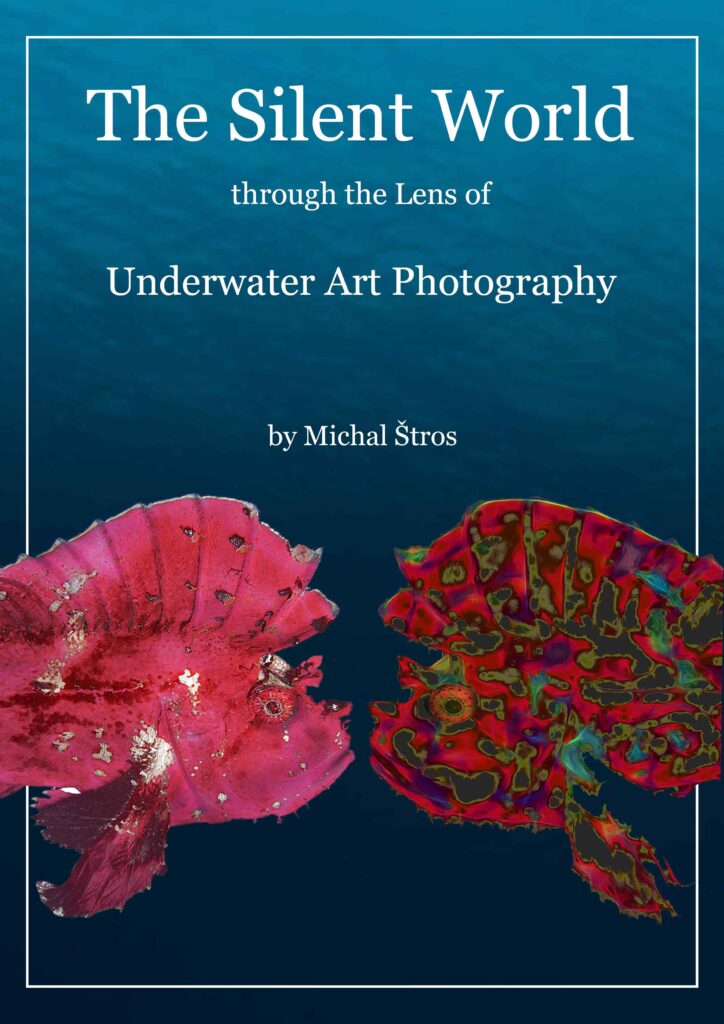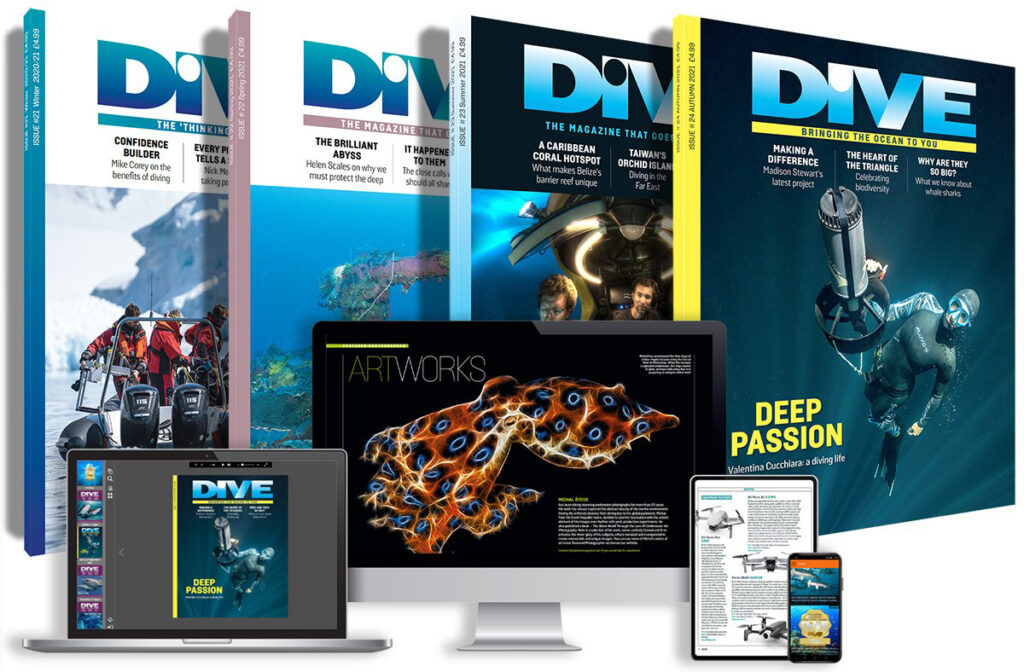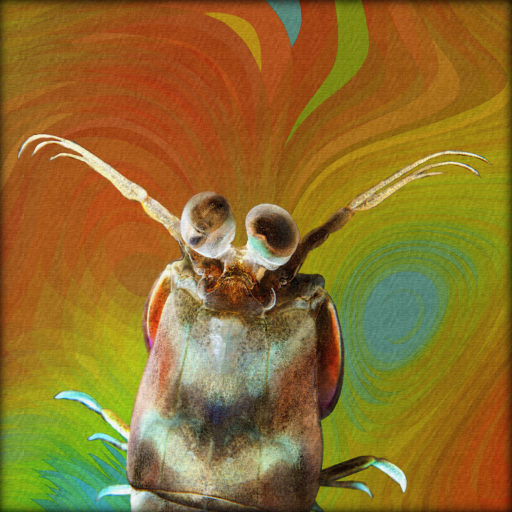Underwater photography offers a fascinating glimpse into the mysterious “Silent World.” During the global COVID-19 pandemic, when I was unable to dive or take new photos, I created most of my “underwater art” by taking previously shot photos and running them through post-production experiments in graphic editing software. Some of my “underwater art” photos have been featured in Dive and Oceanographic magazines. You can find many more original underwater art images in my recently published book, The Silent World Through the Lens of Underwater Art Photography.

Collages
.
A small selection of ‘Underwater Art‘ images:
FRACTALS
How to make beautiful art from underwater images using Fractalius filter
Fractal images are a new art form that allows us to explore the underwater world on a computer. Though fractals are highly complex, examples of them can be found all over nature, including in certain corals, sponges, octopus tentacles, flowers, and even spiral galaxies. There are many ways to create fractals, most of which involve complex mathematical formulas and fractal software programs. One of the easiest ways to simulate fractals from photos is to use the “Fractalius filter” created by Redfield.
Have fun with it – I have.

Underwater world in watercolor










